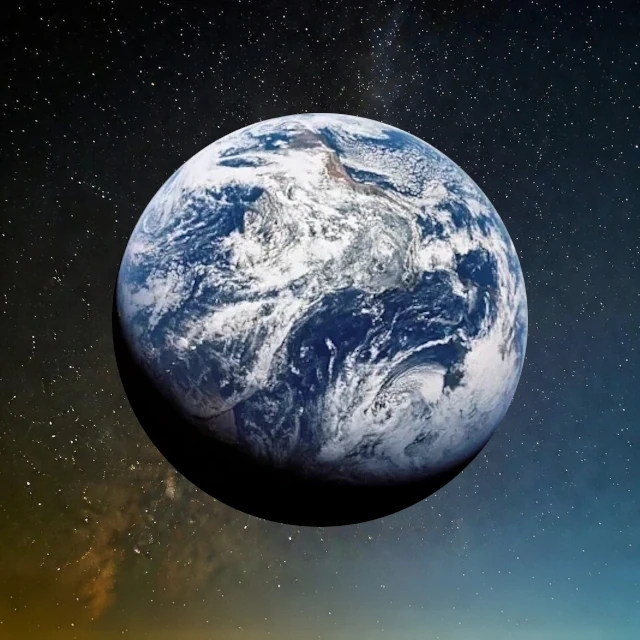
Earth is the only known planet where liquid water exists stably and abundantly on the surface. Nicknamed the "Blue Planet," it owes this color to its oceans, which cover nearly 71% of its surface, with a total volume estimated at 1.332 billion cubic kilometers. This feature is made possible by its ideal position in the solar system's habitable zone, where temperatures allow water to remain liquid. Water has played a fundamental role in the emergence of life and continues to regulate Earth's climate by absorbing and redistributing solar energy through ocean currents.
Earth's atmosphere is radically different from that of other rocky planets. Composed of 78% nitrogen and 21% oxygen, its exceptional oxygen content is due to the photosynthetic activity of living organisms, particularly cyanobacteria and plants. This atmosphere protects life in several ways: it filters ultraviolet rays thanks to the ozone layer, burns most meteors before they reach the ground, and maintains mild temperatures through the natural greenhouse effect. No other planet in the solar system has an atmosphere as rich in oxygen and as conducive to complex life.
Earth is the only known planet with active plate tectonics. Its lithosphere is fragmented into several rigid plates that move slowly over the more ductile asthenosphere. This perpetual movement, fueled by the planet's internal heat, is responsible for many phenomena: earthquakes, volcanism, the formation of mountain ranges like the Himalayas, and the opening of oceans like the Atlantic. This constant recycling of the Earth's crust plays a crucial role in long-term climate regulation (via the carbon cycle) and in maintaining the habitability of our planet. No other planet in the solar system has such a dynamic and complex system.
Earth, our common spaceship, remains to this day the only known haven of life in the universe. Its uniqueness reminds us of the fragility and preciousness of our world. Learn more.
N.B.: The official definition of a planet (since 2006) requires that it orbits the Sun, has a spherical shape due to its own gravity, and has "cleared" its orbit.